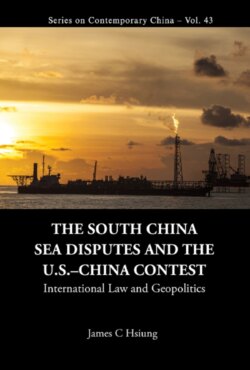Читать книгу South China Sea Disputes And The Us-china Contest, The: International Law And Geopolitics - James Chieh Hsiung - Страница 10
На сайте Литреса книга снята с продажи.
Chapter 1 The Provenance and Ramifications of the SCS Conflicts: Law, Resources, and Geopolitics
ОглавлениеThe South China Sea (SCS) may, by common sense, be assumed to be part of the Pacific Ocean. But, in this book, we treat it as a separate body of waters in its own right, due to its distinctive status arising from a combination of four peculiar factors: (a) its vital importance as a hubbub of trade, since one-third of the world’s shipping (valued at $5.3 trillion in 2015) sails through its waters; (b) its abundant resources, including oil and natural gas; (c) the wide attention it commands because of the clashes arising from the neighboring nations’ overlapping sovereign claims; and (d) post-2010 U.S. geopolitical interests in the region as a strategic site of rivalry with the rerising China, although largely dressed as a freedom of navigation dispute.
For amplification of (a) above, let me add that the oil transported through the Malacca Strait through the Indian Ocean en route to East Asia via the SCS is triple the amount that passes through the Suez Canal, and 14 times that through the Panama Canal.1
This body of waters, stretching over 1.4 million square miles, has been the locale for activities of, or interactions between, the surrounding societies going back to prehistorical times, through the Western colonial dominance in the region (dating from the 16 th to the mid-20th century), down to the post–Cold War era. Unlike in the East China Sea disputes, through much of this long stretch of time the SCS, surprisingly, had its share of relative peaceful tranquility. Exceptions were found in the past strife associated with the intrusion of Western colonialism and, more notably, the truculent inroads by the Japanese Imperial Army (1930s to 1945).2 Even the assertion by the parties of their competing claims, in the past, was relatively muted, by comparison. But, in more recent years, this maritime scene has become a tinderbox of explosive international tensions of rising magnitude, largely for two reasons, namely: (a) the salience of the newly identified abundance in oil deposits among other resources in SCS and (b) the spillover of the United States’ Asia Pivot policy. The following discussion will tackle each of these points separately, in greater depth.
